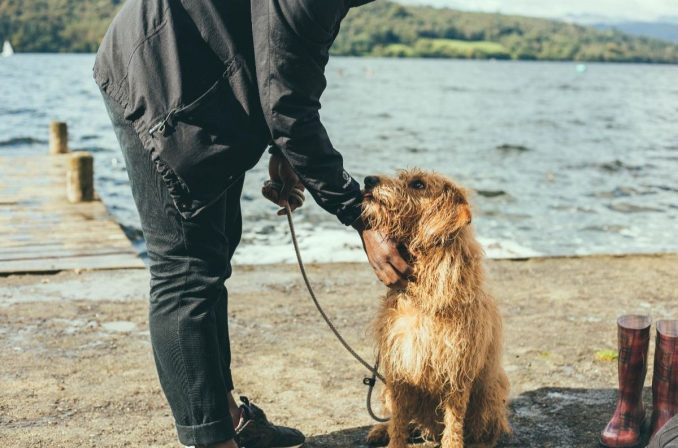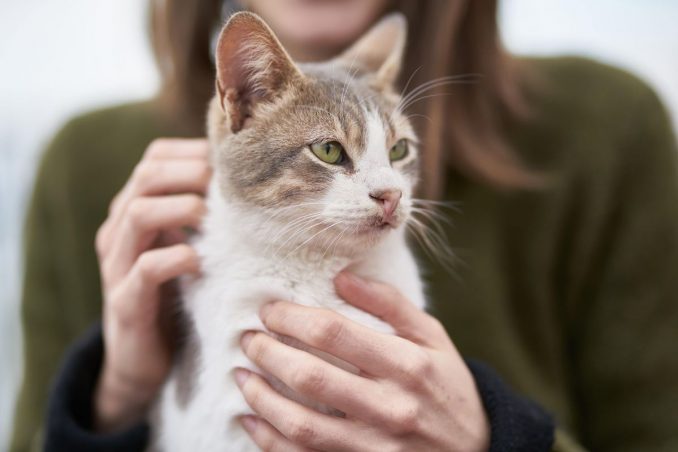If you have any questions about your pet, or if you suspect they are showing symptoms, please do not hesitate to call us immediately at 905-771-9855.

As of April 7th, 2020, the research suggests that pets are overwhelmingly safe. However, being a new virus, we haven’t had a long time to study it and the conclusions are not 100%. These findings may change as we learn more. Here’s what we know so far:
1. Can Humans Pass the Coronavirus to Pets?
The risk is currently assessed as LOW.
There is very little evidence worldwide that pets can contract the virus let alone show symptoms. The handful of cases of animal testing positive for SARS-COV-2 spotted so far worldwide are inconclusive. However, if pets do get it, it’s due to human hosts primarily.
The exception would have to be Ferrets and to a lesser degree cats. There is some evidence they can become infected as they share similar traits in their lungs with humans but the evidence is inconclusive.
2. Can Pets Pass the Coronavirus to Humans?
The risk is currently assessed as LOW.
This virus is thought to originate from bats but has developed into more human to human transmission. There is no evidence currently that pets can pass it to humans either from having the virus themselves or acting as a carrier to the virus (on their fur for example) but that doesn’t mean it cannot happen. To date, this is a theoretical risk only.
3. Can Pets Pass the Coronavirus to Other Pets?
The risk is currently assessed as LOW.
There has recently been a case of a tiger who contracted the disease from a zoo employee and a few other tigers in her area who also started showing symptoms. The likelihood is that they all caught the virus from the same human source, but researchers cannot 100% rule out transmission from the known positive case (only 1 tiger was officially tested). So far this has been the only known potential animal to animal transmission.
4. How Should I Disinfect my Pet?
First, do not use any household chemicals or disinfectants. This can hurt them. The only way is to bathe them properly as if they were muddy – with pet approved shampoo.
5. Can I Take Them for Walks?
Of course! But please respect social distancing for them as well as yourselves. Outdoor cats should be kept indoors for the time being.
6. How Do I Keep My Pet Safe?
The primary measures to manage these potential risks are following basic public health prevention guidance for preventing zoonotic disease transmission, including:
• Respect social distancing rules for pets from other animals not in your household as well.
• Wash your hands before and after touching an at-risk animal or their food/supplies, and after cleaning up after them; do not touch your face with unwashed hands (consider wearing gloves).
• Wear protective outerwear to prevent contamination of your clothes if meeting unknown animals.
• Regularly clean and disinfect any surfaces or objects the animal touches; see Health Canada’s approved list of disinfectants.
• Minimize the animal’s contact with people and other animals
• Bathing or wiping down animals with a pet-friendly product could theoretically help to reduce any possible fur contamination, although there is no evidence to demonstrate effectiveness.

And Please Also Consider:
1. Maintain good hygiene practices, always washing hands before and after handling animals, pet food and supplies.
2. Keep all of our pets away from infected people, as you would with any other household members.
3. If you or a family member are/become infected, limit interaction with pets as much as possible. Avoid all direct contact with your pets – including petting, snuggling, kissing, being licked, or sharing food while symptomatic.
What to do if your pets exhibit flu-like symptoms:
If you are concerned or notice any sudden changes in your pet’s health, contact us immediately and keep them indoors until your scheduled appointment. Signs of illness in cats and dogs can be associated with various common viral and bacterial infections that are not transmittable to humans, so there is no need to panic. Give us a call at 905-771-9855 and we can answer any questions or concerns you may have.

Apart from maintaining good hygiene practices, pet owners do not need to be overly concerned.
We are here for your pets and will plan to remain open for as long as possible during the weeks ahead. However, we also want to ensure the safety of our staff and clients.
Thank you for your understanding and cooperation.
